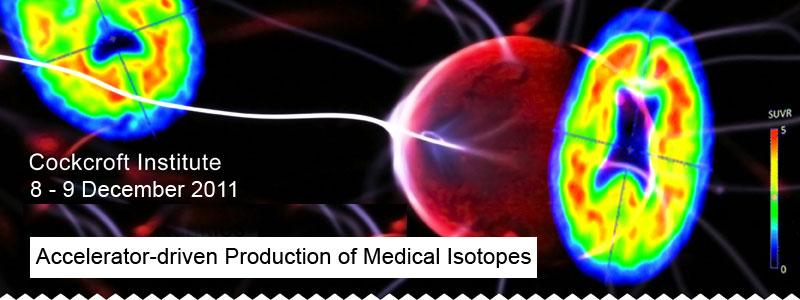Medical isotopes. The term still carries significance with most Canadians although some may have to think back a years to remember why these tiny, exotic atoms are so important to the global healthcare system. "Medical isotopes" is the conventional term used to describe the radiopharmaceuticals that are used to image, diagnose, and even treat more than 40 million patients every year around the world dealing with cancer, neurological disease, or heart conditions. Canada has traditionally supplied about 35% of the global demand for these products' raw material through its NRU nuclear reactor in Chalk River, Ontario.
Over the past four years, concerns about safety, reliability, and longevity of the reactor as chief supplier have opened up an international discussion about where else these isotopes might be obtained. Some believe that other nuclear reactors could be employed, others believe that new reactors should be constructed, while many others believe that the technologies of choice for producing isotopes have evolved since the 1960s when the business got started. As an accelerator laboratory with decades of expertise advancing isotopes for science and medicine, TRIUMF has moved to the fore of these discusisons.
| Last week, Dr. Paul Schaffer and Dr. T.I. Meyer from TRIUMF participated in the ACAMP Seminar on Health and Medical Products in Edmonton, Alberta, to discuss a specific technology for producing the world's most popular medical isotope (Tc-99m) as well as the larger evolutionary forces acting on the supply chain. The session also featured UofA's Steve McQuarrie, Mark de Jong from the Canadian Light Source, and Steven Winston from Lockheed Martin. The audience of about 60 entrepreneurs, scientists, and policy makers listened carefully and asked key questions about the path forward for Canada and the larger global marketplace. |  |
| This week, Dr. Thomas J. Ruth is participating in a 3-day "Moly-99 Topical Meeting" in Santa Fe, New Mexico, organized by the U.S. DOE's National Nuclear Security Administration. Tom is one of only three Canadians invited to the workshop (the other being from the Government of Canada and Nordion). The meeting features leaders from the major U.S. laboratories and research organizations as well as nuclear-medicine companies and the White House Office of Science and Technology Policy. Tom is speaking about the NISP program he leads with support from Natural Resources Canada that is demonstrating how existing, conventional medical cyclotrons can be modestly upgraded to become viable suppliers of Tc-99m for locall urban regions. |  |
| At the end of this week, Dr. Stefan K. Zeisler will be joining an international workshop entitled "Accelerator-driven Production of Medical Isotopes" hosted by the Cockcroft Institute for Accelerator Science and Technology in Daresbury, UK. He will be giving an invited presentation on high-power targets for use in accelerators to produce medical isotopes with a focus on cyclotron-production of Tc-99m. |  |
TRIUMF continues to be an expert resource as well as an R&D leader in medical isotopes. We hope that these workshops and conferences will advance the global dialogue on medical isotopes and ultimately provide new technologies and new breakthroughs for Canadians and patients around the world.
In each of these cases, the speakers represent the expertise and combined efforts of a large team of people at TRIUMF and beyond. Congratulations to everyone invovled for this recognition.
--by T.I. Meyer, TRIUMF's Head of Strategic Planning and Communications
